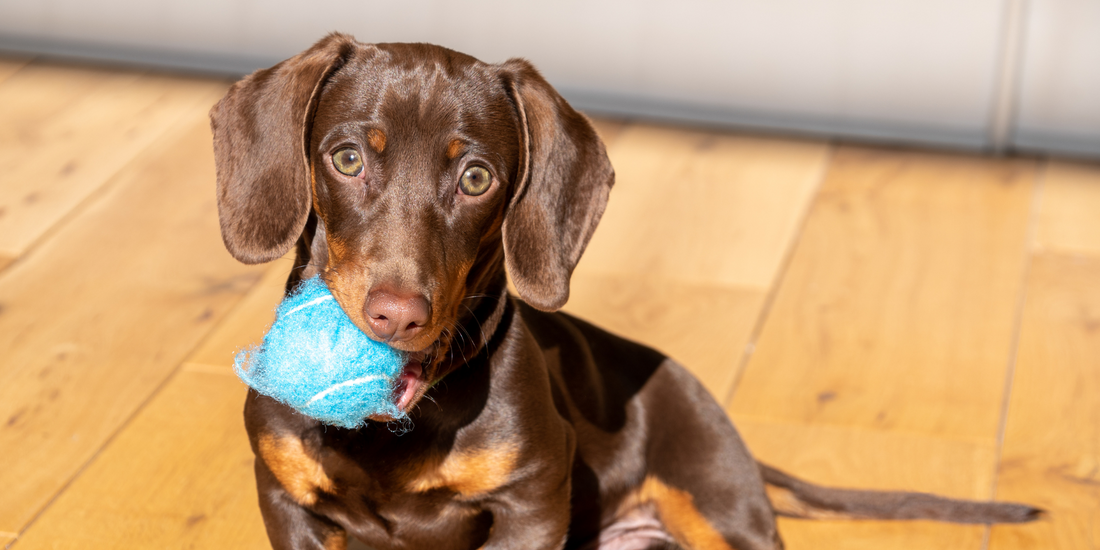Dachshunds are known for their lively personalities and their unwavering desire to explore. However, as with many dog breeds, they may nip or bite. This can happen for a variety of reasons, from playfulness to fear or insecurity. In this blog post, we give you helpful tips on how to deal with nibbling and biting in dachshunds to promote a harmonious and secure relationship with your four-legged friend.
Why biting and nibbling?
Before we get into the solutions, it is important to understand the causes of nibbling and biting. Dachshunds may bite or nibble for a variety of reasons:
- Play instinct: Young Dachshunds, especially puppies, often bite during play. This is a normal behavior to explore their environment and practice social interactions.
- Teething pain: Puppies often chew on things to soothe their teeth when they are teething.
- Fear or insecurity: Biting can be a sign of fear or insecurity. If your Dachshund feels threatened, he may resort to biting behavior.
- Attention seeking: Some Dachshunds bite to get attention or to draw attention to themselves, especially when they feel neglected.
Strategies for dealing with nibbling and biting
Here are some tried and tested methods to control your Dachshund’s nibbling and biting:
1. Proper socialization
Early socialization is crucial to helping your Dachshund feel safe and comfortable. Expose him to different people, animals and situations to encourage his social skills. This can help reduce fear and insecurity that can lead to biting behavior.
2. Positive reinforcement
Reward good behavior with praise and treats. If your Dachshund plays gently or stops biting when asked, reward him immediately. Positive reinforcement helps to reinforce desired behavior and reduce undesirable behavior.
3. Offer alternatives
Provide your Dachshund with appropriate chew toys. When he feels the urge to bite, redirect him to these toys. Chewing on toys can help him release his energy and take care of his teeth without causing harm to people or other animals.
4. Set consistent rules and boundaries
Set clear and consistent rules for your Dachshund's behavior. If you want him not to bite, be consistent in showing him that this behavior is unacceptable. Avoid encouraging him by laughing or playing when he bites, as this can reinforce his behavior.
5. Training and commands
Teach your Dachshund basic commands like "no" or "out." These commands can help stop him if he starts biting. Repeat the commands regularly and reward him when he stops biting.
6. Pay attention to dental care
If your dachshund is biting due to teething pain, look for appropriate chew toys and dental care products. Chew toys designed specifically for puppies can help relieve teething pain and reduce chewing.
7. Seek professional help
If your Dachshund's biting or nibbling doesn't improve or gets worse, it may be helpful to seek professional help. An experienced dog trainer or behavior consultant can offer customized solutions and help you effectively correct the behavior.
Conclusion
Dealing with nibbling and biting in Dachshunds requires patience, consistency and a good understanding of the causes of the behavior. Through early socialization, positive reinforcement and clear rules, you can help your Dachshund become a well-behaved and happy companion. Remember that any behavior that is not corrected immediately takes time and effort. With the right approach, you can successfully change your Dachshund's behavior and build a strong, trusting relationship with him.






